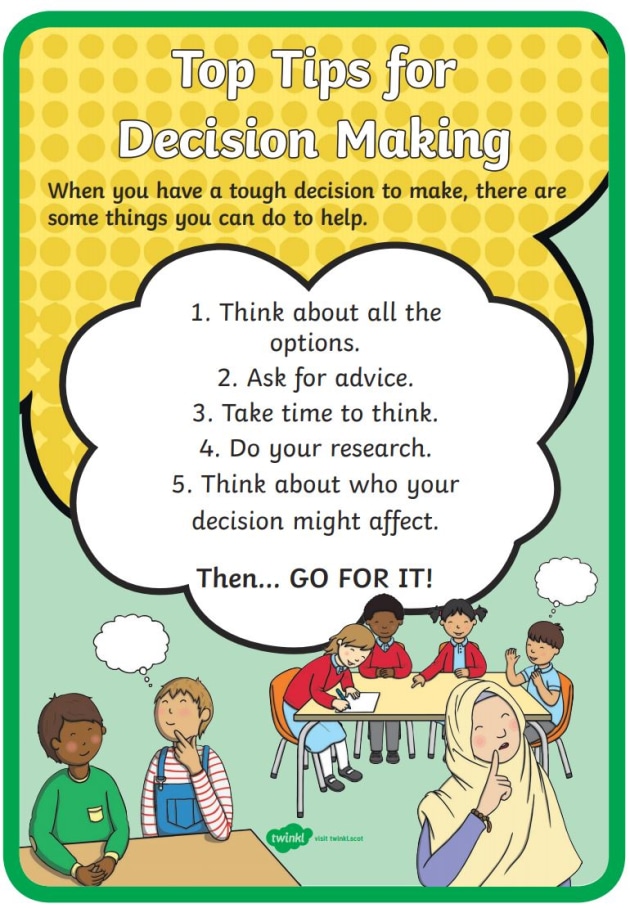The Science of Choices: Ways to Make Improved Choices
In a realm overflowing with options, the capacity to make sound decisions is more vital than before. From the common daily choices we encounter—the breakfast menu—to significant life-altering choices like picking a career, the process of making decisions molds our existence in significant ways. Yet, despite its importance, many individuals have difficulty with making choices, often yielding to uncertainty or regretting their choices afterwards.
Understanding the science behind making decisions can empower you to master the craft of smart decision-making. In this write-up, we will investigate 10 tested methods to boost your decision-making skills, delve into the psychology that influences good decisions, and offer practical strategies to enhance clarity and confidence in your choices. Whether you are a leader faced with challenging calls or an person struggling with doubt, these insights will equip you to make better choices, even in pressure. Come along as we uncover the strategies that can transform your decision-making process and assist you steer life with increased confidence and clarity of thought.
Methods for Enhanced Decision Making
Improving decision-making begins with perfecting the skill of smart decision-making. One effective technique is to utilize a decision making structure, such as the pros and cons list. This straightforward tool helps visualize the potential benefits and drawbacks of each alternative, making it more manageable to assess your choices. Additionally, applying the SMART guidelines—Specific, Quantifiable, Attainable, Relevant, and Time constrained—can provide insight and concentration when evaluating options, ensuring that decisions conform with your targets.
Another vital technique involves reviewing past decisions to learn from them. Looking back on past choices can illuminate trends in decision-making, enabling you to recognize what worked and what did not. This practice encourages a development mindset and encourages you to view mistakes as opportunities for growth rather than failures. By developing leadership decision-making , you can enhance your capacity to make intelligent decisions in the future.
Ultimately, managing decision fatigue is vital for maintaining mental clarity. Simplifying your decisions, whether by structuring your day to handle important decisions when your energy is highest or reducing the number of daily decisions you consider, can reduce overwhelming feelings. Consistent pauses and concentration practices can also help clear your mind and improve concentration, allowing for more efficient and more productive decision-making under stress.
Understanding Choice-Making Cognitive Theory
Making decisions is profoundly rooted in psychology, influencing how we evaluate options and come to conclusions. Cognitive distortions play a significant role in this process, often skewing our perception and guiding us to make choices that diverge from rational thought. For example, the favoring bias causes subjects to favor information that backs up their existing beliefs while disregarding contradictory data. Comprehending these biases can help individuals make more knowledgeable and balanced decisions.
Emotional awareness also greatly impacts choices. https://anotepad.com/notes/nf4wtqqm to identify and control one’s emotions enables a more accurate assessment of situations, particularly in stressful environments. Choices made in the throes of emotion can cause regret, whereas a level-headed approach promotes improved judgment. Fostering emotional awareness not only aids in personal decisions but also boosts interactions with peers during collective choices.
Furthermore, the relationship between intuition and logical reasoning is a vital aspect of decision-making psychology. Although intuition can provide rapid insights based on past experiences, depending entirely on it can lead to errors. Combining gut feelings with detailed analysis guarantees a thorough evaluation of options. This fusion allows individuals to make assured decisions that are both natural and logically sound, leading to better outcomes in various facets of life.
Effective Tools for Decisive Choices
Making assured decisions often is based on having the right tools at your disposal. Visit this link is to employ a decision matrix, which permits you to weigh various options against specific criteria that matter most to you. By granting scores to each option based on how well they meet these criteria, you can illustrate your choices and make a well-informed decision. This structured approach reduces biases and emotions that might cloud your judgment.
Another important tool is the “10-10-10” rule, where you assess how you will feel about your decision in 10 minutes, 10 periods, and 10 decades. This method promotes you to think beyond the immediate consequences, ensuring that your decisions align with your long-term goals and values. By viewing your choices in this way, you can gain clarity and confidence in the paths you choose.
Additionally, practicing mindfulness can significantly boost your decision-making process. Taking a moment to pause and reflect allows you to clear your mind of distractions and reduce anxiety associated with making tough choices. Techniques such as deep breathing or short meditation can help you tune with your intuition, making it easier to discern what feels right. By including these tools into your decision-making routine, you can approach choices with enhanced assurance and clarity.
